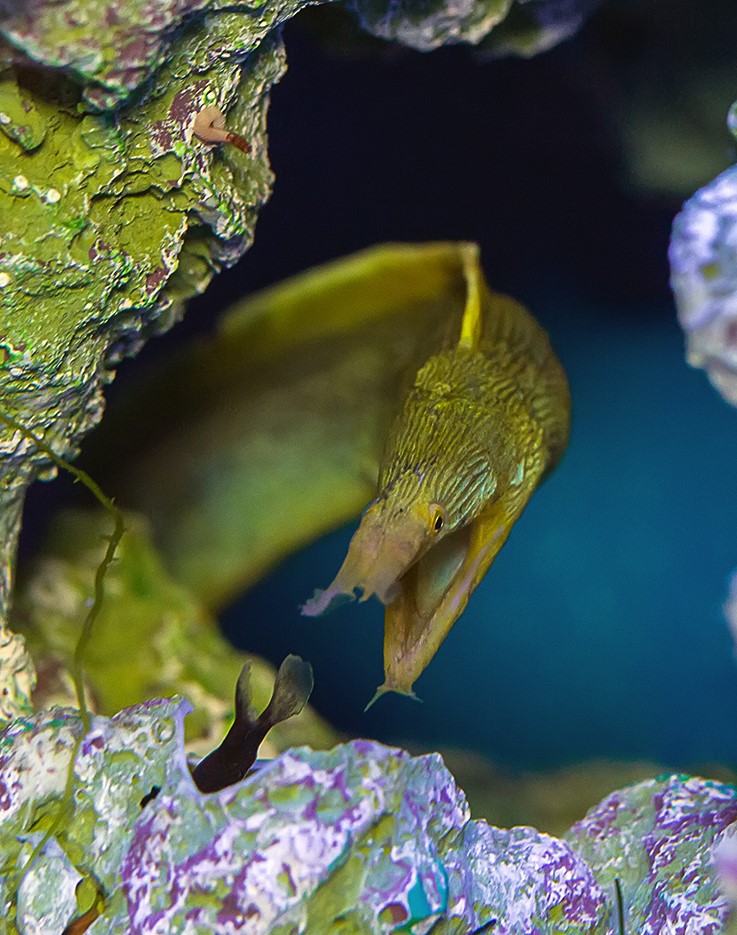Participants in the Researcher program of the Growing up at the Aquarium project, aged 8 to 16 years, have presented their projects in marine biology.
The children demonstrated a wide range of interests. They told the audience how they had raised jellyfish and planktonic crustaceans, studied the husbandry and care of the Atlantic horseshoe crabs (Limulus Polyphemus) in an aquarium setting, observed geckos incubating eggs and monitored the behavior of marine mammals. Some research projects by high school students touched upon biochemistry and animal physiology.
In October 2024, the Researcher program welcomed 15 students, and Maria Bykova, a fifth-grader, was one of them. She has already been participating in the Growing up at the Aquarium project for five years, with two of them spent at the Researcher. Maria’s research focuses on the behavior of a beluga whale and its reactions to new stimuli. Assisted by Aquarium staff, the schoolgirl conducted 17 test sessions with beluga whale Yukka at the Marine Mammal Research Facility. Last year she presented her research, together with her supervisor Elizaveta Roshkolaeva, at the International Congress of Young Biologists held in Moscow.
“The principal distinction between the Researcher and our other educational programs is that each student is supervised individually,” said Elizaveta Roshkolaeva, Lead Specialist at the Education Department. “What really matters is children’s involvement in the research process and their interest in marine biology. There are no age limits to attend classes; both grade and high school students are welcomed to the program. Assignments are customized to match the skill level of each participant.”
.jpg)
Each student has a personal supervisor who helps him or her with research and project work. Aquarium team members such as biologists, trainers and even engineers are also involved in the program with a goal to develop supportive environment for young researchers. At these classes children learn to analyze findings and gain an insight into scientific research, and at the end of the academic year they have to defend their research projects.
“Perhaps, not all of our program alumni will become biologists when they grow up,” said Elizaveta Roshkolaeva. “But I sincerely hope that they will continue to enjoy exploring the world.”



.jpg)

